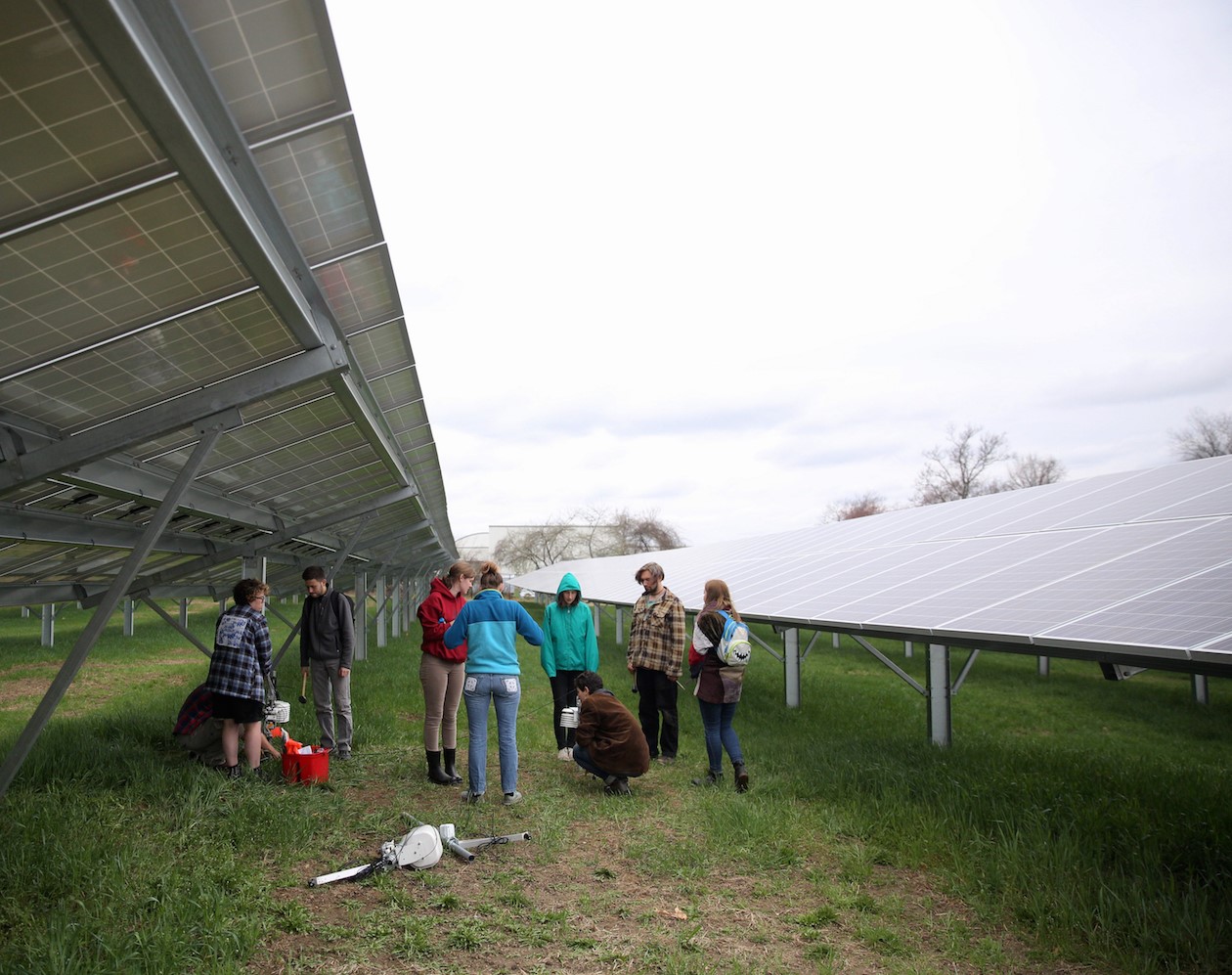
An array of solar panels at Hampshire College. (Hampshire College/Courtesy)
One of the biggest expenses of running a college campus is the cost of energy, so, to cut costs, Hampshire College in Amherst, Massachusetts, is now running completely on electricity generated on campus.
The small liberal arts college sees the decision as part of its educational and environmental mission.
On Tuesday, the local utility company Eversource gave Hampshire conditional approval to power up nearly 20 acres of solar panels.
Hampshire president Jonathan Lash says the College has banked enough electricity in the summer to draw it down in the coldest months.
"This is essentially a collaboration with the utility where we'll produce much more power than we need in June, July, August, September, October and they will make up that gap in January, February, March when the system isn't producing as much as we use," said Lash, who estimates this move will cut the College's energy bill in half, saving the college more than $400,000 each year.
"The rate we pay now is over 13 cents a kilowatt hour, and we'll be paying six and quarter cents a kilowatt hour," Lash said.
"If anybody has doubts about what an institution or a town or a school can do, they need to look again," Lash said. "If Washington can't figure this out, we can."
Hampshire is urging other colleges in western Massachusetts, including Smith College, Amherst College and the University of Massachusetts Amherst to go green.
The only other college to go 100 percent solar, Butte College, a community college in northern California, was the first in the country to generate more electricity than it uses.
Butte, with more than 25,000 solar panels, expects to save more than $100 million over the course of 30 years.
Other schools, including Georgetown University and the University of Vermont, generate a large percentage of their electricity from renewable sources, but it is a mix of wind and solar.
As solar costs drop, climate leaders predict more US colleges will turn to panels as a way to cut utility bills and be greener.
"The great thing about buying renewable energy, including solar, is that this is no longer simply an environmental decision, and it's definitely not a political one - it simply makes good economic sense," said Tim Carter, president of Second Nature, a Boston-based nonprofit working with colleges to help make their campuses more sustainable.
"We are seeing campuses all over the country moving aggressively into large-scale renewable energy procurement as it helps them meet their campus targets on a variety of economic, environmental, and strategic fronts," Carter said.
Last year, WGBH's On Campus visited Hampshire to see its new green building.
Earlier: Going 100 Percent Solar, Hampshire Leads Way in Sustainability










